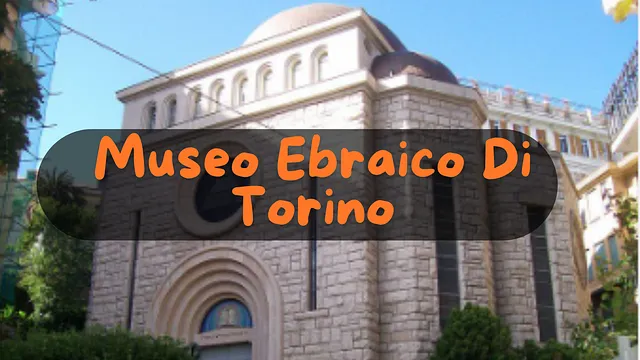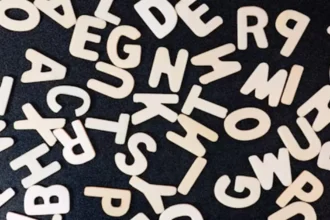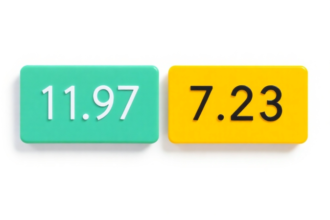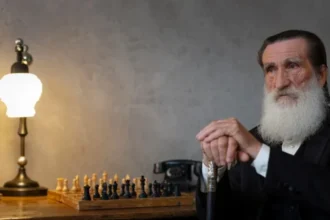Introduction to Museo Ebraico Di Torino
Nestled in the heart of Turin, the Museo Ebraico Di Torino stands as a beacon of history and culture. This museum offers visitors an intimate look into the vibrant Jewish heritage that has flourished in this Italian city for centuries. From ancient traditions to modern-day narratives, every corner of this museum tells a story waiting to be discovered. Whether you’re a history buff or just curious about diverse cultures, exploring the treasures within these walls will leave you enlightened and inspired. Join us on a journey through time as we delve deeper into what makes the Museo Ebraico Di Torino an essential stop for anyone visiting Turin.
History of the Jewish Community in Turin
The Jewish community in Turin has a rich and complex history that dates back to the 15th century. The first Jews arrived during the Renaissance, drawn by opportunities in commerce and finance.
Over time, they established a vibrant community despite facing periods of hardship and discrimination. By the late 19th century, their numbers swelled as many sought refuge from oppressive regimes elsewhere in Europe.
During this era, Jewish cultural life flourished with schools, synagogues, and social institutions emerging throughout the city. Sadly, World War II brought devastation as many were deported or killed during the Holocaust.
Today’s community is smaller but resilient, actively preserving its heritage through education and cultural initiatives. This historical backdrop makes Museo Ebraico di Torino an essential place for understanding not just local Jewish history but also broader themes of acceptance and coexistence.
The Architecture and Layout of the Museum
The architecture of Museo Ebraico di Torino is a captivating blend of tradition and modernity. Housed in the historic building that once served as the city’s synagogue, it reflects centuries of Jewish culture.
As you enter, the layout invites exploration. Each room unfolds like a chapter in a story. The space is thoughtfully designed to enhance your experience with interactive displays and well-curated artifacts.
Natural light floods the galleries, creating an inviting atmosphere. The use of glass elements adds transparency, symbolizing openness within the community’s history.
Visitors will find themselves drawn into various sections showcasing art, ritual objects, and documents that illustrate Jewish life in Turin. Each exhibit flows seamlessly into the next, providing context and depth to every piece on display. The architectural choices support not just aesthetics but also cultural storytelling throughout the museum’s narrative journey.
Exhibits and Collections at Museo Ebraico Di Torino
The Museo Ebraico di Torino houses a rich tapestry of Jewish history and culture. Its exhibits showcase artifacts that span centuries, illustrating the deep roots of the Jewish community in Turin.
Visitors can marvel at ancient manuscripts, beautifully crafted ceremonial objects, and textiles that tell stories of tradition and faith. Each piece is curated to reflect not only its artistic value but also its historical significance.
One standout feature is the collection of religious items used in daily life and special occasions. These objects offer insight into the rituals and customs that have shaped Jewish identity over time.
Interactive displays enhance the experience, inviting guests to engage with history on a personal level. The museum’s thoughtful layout allows for an immersive journey through Jewish heritage, making it a must-visit destination for anyone interested in cultural exploration.
Events and Programs at the Museum
Museo Ebraico di Torino hosts a variety of events and programs that enrich the cultural landscape of Turin. The museum frequently organizes lectures, workshops, and guided tours aimed at deepening visitors’ understanding of Jewish history.
Special exhibitions are also held throughout the year. These showcase unique artifacts and contemporary art pieces that highlight diverse aspects of Jewish culture. Such events draw in not just locals but tourists eager to learn more.
Educational programs for schools provide students with engaging resources about Judaism and its cultural significance. Families can participate in interactive activities designed to foster appreciation for this rich heritage.
Moreover, during significant Jewish holidays, the museum often features celebratory events that invite community participation. This creates an atmosphere where tradition meets modernity, making every visit truly memorable.
Impact on the Local Jewish Community to Museo Ebraico Di Torino
The Museo Ebraico di Torino serves as a vital hub for the local Jewish community. It provides a space where history and culture converge, fostering pride in their heritage.
Educational programs engage both young and old, sparking curiosity about Jewish traditions and customs. Through workshops and guided tours, visitors gain deeper insights into the richness of Jewish life in Turin.
Moreover, the museum acts as a gathering place for cultural events. Celebrations like Hanukkah or Passover are marked with communal activities that strengthen bonds within the community.
This connection to history helps preserve stories that might otherwise fade away. The museum ensures these narratives continue to resonate through generations.
Local families often visit together, making it an integral part of their lives. This shared experience cultivates understanding among diverse groups within Turin itself.
Conclusion
Museo Ebraico Di Torino stands as a testament to the rich Jewish heritage of Turin. It invites visitors to explore stories etched in time, showcasing the resilience and vibrancy of a community that has thrived for centuries.
Every corner of the museum whispers tales from history. Its collections reflect not only artifacts but also lived experiences, connecting past and present.
As you wander through its halls, there’s an undeniable sense of belonging and understanding. The exhibits spark curiosity and appreciation for cultural diversity.
Engagement with this space fosters dialogue about identity and history. Each visit becomes more than just a tour; it transforms into an enlightening experience that resonates deeply within individuals.
Exploring Museo Ebraico Di Torino is essential for anyone wishing to grasp the intricate tapestry woven by Turin’s Jewish community. There’s always something new waiting to be discovered here.
FAQs
Visiting the Museo Ebraico di Torino raises many questions for those interested in Jewish heritage and culture. Here are some frequently asked queries:
Q: What are the opening hours of the museum?
A: The museo ebraico di torino typically operates from Tuesday to Sunday, with varying hours. It’s best to check their official website for current timings.
Q: Is there an admission fee?
A: Yes, there is usually a small entrance fee that helps support the museum’s activities. Discounts may be available for students and seniors.
Q: Are guided tours offered?
A: Guided tours are often available. They provide deeper insights into the exhibits and history of Turin’s Jewish community. Reservations might be required during busy periods.
Q: Can I take photographs inside the museum?
A: Photography policies can vary by exhibit, so it’s wise to inquire at reception before snapping pictures.
Q: Is accessibility provided within the museum?
A: The museo ebraico di torino strives to accommodate all visitors. Accessibility features are generally in place but checking ahead can ensure a smooth visit.
Q: Do they have events throughout the year?
A: Yes! The museum hosts various events, including lectures, workshops, and cultural celebrations that highlight Jewish traditions and history in Turin.
These FAQs should help streamline your planning process when visiting this significant cultural institution dedicated to preserving Italian Jewish heritage.

















